#Acts of the Apostles
Text
Technology just revealed a new name to women’s history.
For nearly 1,300 years, no one knew it was there. The name of a highly educated English woman, secretly scratched on to the pages of a rare medieval manuscript in the eighth century, but impossible to read – until now.
Academics have discovered the Old English female name Eadburg was repeatedly scored into the surface of the religious text, using a method that kept it hidden from the naked eye for more than 12 centuries.
The covert writing of the woman’s name was finally revealed when researchers at the Bodleian Library in Oxford used cutting-edge technology to capture the 3D surface of the ancient manuscript, a Latin copy of the Acts of the Apostles that was made in England between AD700 and AD750.
It is the first time this technology, capable of revealing “almost invisible” markings so shallow they measure about a fifth of the width of a human hair, has been used to record annotations on the surface of a manuscript.
“There are only a limited number of surviving early medieval manuscripts which contain clear internal evidence of a woman having created, owned or used them,” said Jessica Hodgkinson, a PhD student at the University of Leicester who made the discovery while researching her thesis on women and early medieval manuscripts.
“Most of these manuscripts are from the continent – it is much rarer to find evidence of this in surviving manuscripts which were made and used in the geographical area we now call England.”
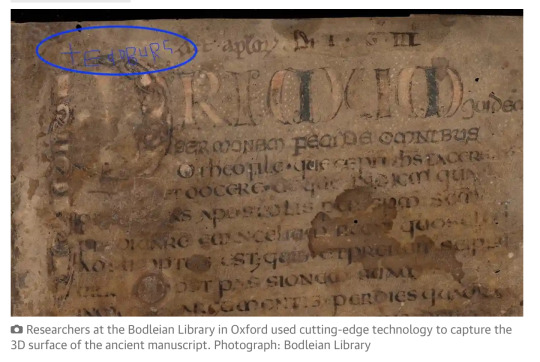
Writing Eadburg’s name on the book quietly asserted her power and high status at a time when only a few elite, highly educated women were able to write and read both Old English and Latin. “It’s a hugely significant and very powerful text – the word of God, conveyed through the apostles. And I think that might be at least part of the reason why somebody chose to write Eadburg’s name into it, so that she was close to that.”
It is not clear why the name was written so stealthily, with a drypoint stylus, rather than ink. “Maybe it was to do with the resources that person had access to. Or maybe it was to do with wanting to leave a mark that put that woman’s name in this book, without making it really obvious,” Hodgkinson said. “There could have been some reverence for the text, which meant the person who wrote her name was trying not to detract from the scripture or compete with the word of God.”
Significantly, she found Eadburg’s name passionately etched into the margins of the manuscript in five places, while abbreviated forms of the name appear a further 10 times.
This suggests it is likely to have been Eadburg herself who made the marks. “I could understand why somebody might write someone else’s name once. But I don’t know why you would write somebody else’s name so many times like that,” Hodgkinson said.
An Old English transcription, and tiny, rough drawings of figures – in one case, of a person with outstretched arms, reaching for another person who is holding up a hand to stop them – were also discovered etched on to the small book, which is barely bigger than an A5 pamphlet.
Hodgkinson hopes further study will reveal the meanings of these figures and the ancient transcription, which has so far proved impossible to translate.
She also hopes to eventually discover who Eadburg was. Certain features of the manuscript suggest the book was produced in Kent, where a woman called Eadburg was abbess of a female religious community at Minster-in-Thanet in the mid-eighth century. However, there are at least eight other known contenders for the role.
But whether or not these mysteries are ever solved, for Hodgkinson there is something very empowering and meaningful about the discovery of Eadburg’s name. “Still, to this day, there’s this human urge to leave a mark of your presence on something that is meaningful to you or is a record of where you’ve been,” she said. “We don’t know all that much about Eadburg, but now, because of this amazing technology, we’ve seen her name, we know she was there. She’s here, in this book – and it speaks across the centuries.”
#England#Eadburg#Women in history#medieval history#old english#Acts of the Apostles#Latin#Bodleian Library in Oxford
557 notes
·
View notes
Photo

"We find Christ in all the Scriptures. In the Old Testament He is predicted, in the Gospels He is revealed, in Acts He is preached, in the epistles He is explained, and in Revelation He is expected."
- Alistair Begg
#Jesus#Scriptures#Old Testament#find#Gospels#Acts of the Apostles#Revelation#Alistair Begg#Christian Quotes
29 notes
·
View notes
Photo

Was Christ a common name around the time the Bible was written?
No, because “Christ” is not a name; it is a title. It comes from the Ancient Greek word χριστός (chrīstós), which means “anointed one.” The Greek word comes from the verb χρίω (chrī́ō), which means “to anoint.” The word in Greek is used in the New Testament as a calque of the Hebrew word מָשִׁיחַ (māšîaḥ), which also means “anointed one.” Neither of these words were names; they are both, in fact, titles. Nonetheless, because Jesus is so often referred to in the English-speaking world as “Jesus Christ,” many people have come to incorrectly believe that “Christ” is Jesus’s last name.
Ironically, although Christ was certainly not a common name in Jesus’s time—or even a name at all—Jesus actually was an extremely common name. The name Jesus is an Anglicization of the Latin name Iesus, which is a Latinization of the Greek name Ἰησοῦς (Iēsoûs), which is a Hellenization of Jesus’s original name in Aramaic ישוע (Yēšū́aʿ).
Yēšū́aʿ was an extremely common name for Jewish men in the early first century AD. Indeed, Jesus of Nazareth is not even the only person by that name who is mentioned in the New Testament. Other notable Jesuses mentioned in the New Testament include Jesus Barabbas in the gospels and Jesus Justus in the Book of the Acts of the Apostles.
#kemetic dreams#jesus#book of acts#acts#acts of the apostles#latin#iesus#iesous#yesua#hellenization#aramaic#new testament#christ#hebrew
53 notes
·
View notes
Photo

Saint Stephen the Martyr
Died:.34
Feast day: December 26
Patronage: Altar Servers, casket makers, deacons, headaches, horses, masons, Italy
St. Stephen, traditionally regarded as the Protomartyr, was according to the Acts of the Apostles a deacon in the early church at Jerusalem who aroused the enmity of members of various synagogues by his teachings. Accused of blasphemy, at his trial he made a long speech fiercely denouncing the Jewish authorities who were sitting in judgment on him and was then stoned to death.
{website}
64 notes
·
View notes
Text
Christ is now exalted above the heavens, but He still suffers on earth all the pain that we, the members of His Body, have to bear. He showed this when He cried out out from above: Saul, Saul, why do you persecute Me? [Acts 9:4b] and when He said: I was hungry and you gave Me food [Matthew 25:35a].
Saint Augustine of Hippo, Sermon on the Ascension of the Lord

icon from the Russian Orthodox chapel at Dachau
#Christianity#Catholicism#Orthodox Christianity#icon#Jesus Christ#suffering#Saint Augustine#Ecclesia#Harrowing of Hell#Christ the Liberator#Acts of the Apostles#Gospel of Matthew#daridranarayan#persecution
21 notes
·
View notes
Text
2024 APRIL 04 Easter Thursday
"Repent, therefore, and be converted, that your sins may be wiped away. And that the Lord may grant you times of refreshment."
~ Acts 3:18-19b
#Easter#Easter Thursday#bible#verse#scripture#first reading#Acts of the Apostles#repent and be converted#sins wiped away#times of refreshment#God#Lord#Jesus#Jesus Christ#Christ
5 notes
·
View notes
Photo

The gospels and Acts are chock full of magical thinking, fantasy, miracle folklore.
All of which would be dismissed by the devout if they came across such stories in the scriptures of other religions, Harry Potter novels, or Disney adventures.
-- David Madison
Obvious fantasy genre is obvious.
#David Madison#christianity#jesus christ#bible#bible study#fantasy genre#gospels#acts of the apostles#obvious fiction#magical thinking#miracles#folklore#religion#religion is a mental illness
31 notes
·
View notes
Text

By Jean-Pierre Isbouts
1 December 2022
After Jesus' death in A.D. 33, his early followers began slowly spreading out from Jerusalem to find sanctuary in places such as Cyrus, Phoenicia, Damascus, and Antioch.
The authors of the New Testament, like St. Luke the Evangelist who is believed to have penned the book Acts of the Apostles around A.D. 80, tell the struggles believers and the early church faced in their nascent days.
In Acts, Luke tells the story of St. Stephen, the first Christian martyr to be gruesomely executed in A.D. 36.
Stephen's stoning, Luke says, prompted other followers to flee so as not to fall victim to similar persecutions.
So, what does the Bible say about how this vulnerable faith got jumpstarted, eventually evolving into the world’s most populous religion with some 2.3 billion followers today?
Mystical conversion
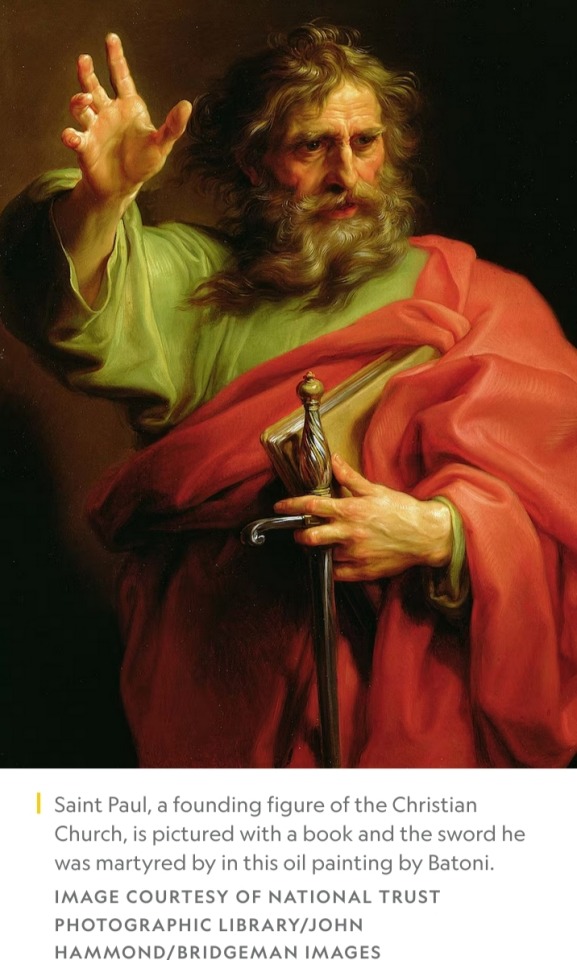
Acts of the Apostles tells the story of one man, Saul of Tarsus, who played a huge role in spreading early Christianity.
Devoutly Jewish and a Roman citizen, he was an unlikely proponent of this new faith.
It describes how he witnessed the mob scene around Stephen’s death and came to believe it was his solemn duty to persecute Christians, going so far as to drag Christian men and women to prison, punishing them to deny their faith.
He obtained permission from the high priest in Jerusalem to pursue and arrest fleeing Christians.
On his way to Damascus, Syria, however, a light from heaven flashed around him.
He fell to the ground and heard the voice of the resurrected Jesus saying, “Saul, why do you persecute me?” (Acts 9:4).
From that moment on, Saul (later called Paul) devoted himself to the Apostolic mission.
Spreading the message
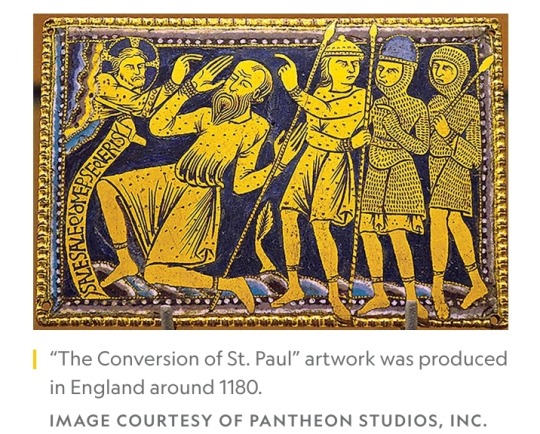
Among the places where early Christians fled for safety from persecution was Antioch, capital of Roman Syria.
The newly converted Paul found himself there and, with the apostle Barnabas, spent a year preaching the gospel and establishing the first Christian church.
It was there that the term “Christians” — "followers of Christ” — was coined (Acts 11:21).
It was also from Antioch that Paul embarked on three separate journeys, detailed in Acts, traveling over 10,000 miles between A.D. 46 and 57.
It tells of Paul’s visits to present-day Israel, Syria, Greece, and Turkey, walking roads that Romans built to facilitate control over the empire and enduring uncomfortable passages on weather-exposed decks of boats.
Along the way, he argued “persuasively about the kingdom of God” (Acts 19:8) and performed “extraordinary miracles” (Acts 19:11), such as curing the sick.
In Cyprus, he baptized a Roman consul, Paulus Sergius.
He shared Jesus’ gospel and established churches throughout the Roman Empire, communities of faith that featured confessions, liturgies, bishops, priests, and deacons.
Resistance, arrest, and martyrdom
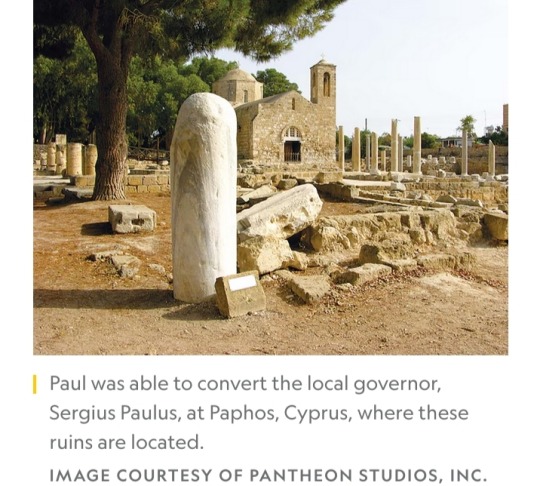
Everywhere he went, however, Paul also encountered Jewish followers, who called him a heretic.
He endured beatings, stoning, and arrests for preaching the gospel.
In Athens, Acts recounts how Paul became distressed over the preponderance of idols.
He tried to reason with the citizens:
“As I walked around and looked at your objects of worship, I even found an altar with this inscription: To an unknown god. So you are ignorant of the very thing you worship” (Acts 17:23).
He debated that this “unknown god” was the biblical God, the creator of heaven and earth.
Some sneered, but others said they wanted to hear more from Paul (Acts 17:32). Just by talking to people, he successfully made converts, one by one.
Acts records that Paul was arrested several times by the Romans and imprisoned twice in Rome.
The first time, between A.D. 60 and 62, he was arrested for causing a riot in a Jewish temple in Jerusalem.
He was allowed to live in a house, where it’s said he converted his Roman guards.
The Romans arrested him again sometime between A.D. 62 and 67.
This time, he was confined to Tullianum, a maximum security prison. Soon after, Paul is said to have been martyred.
His end is unclear, but the most common account claims he was beheaded at the order of the Roman emperor Nero, who blamed him as a Christian leader for Rome’s burning.
Paul’s unique ways
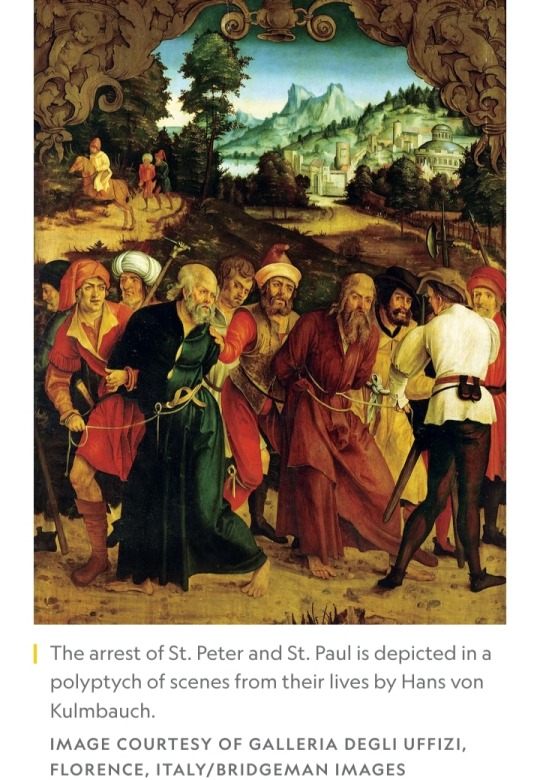
Many other apostles and missionaries evangelized Christianity at the same time as Paul.
While biblical accounts show that Paul didn't claim to be anything more than an ambassador for Christ, he did have a unique strategy.
He worked to baptize souls regardless of whether they were Jewish or Gentile.
One big question centered on whether converts to Christ should also be expected to become Jewish.
For the Jerusalem apostles, the answer was yes. For them, faith was inseparable from Jesus’ teachings as a Jewish rabbi. Paul disagreed.
He welcomed Gentiles who were attracted to Christianity but were not interested in adopting Jewish customs.
Paul was intelligent and controversial, pouring his experiences and thoughts into letters throughout his travels.
Some say he wrote so many letters because so many people argued with him.
Whatever the case, the letters summarize his views on Christianity, ideas that became the bedrock of the Catholic Church.

In his Letter to the Romans, for example, he said that faith in Christ supersedes Jewish Law; that each community is part of the “body of Christ” and should be governed by love; and that faith in the Christian God holds the promise of eternal life.
In all, he authored 13 epistles (seven of which are undisputedly his, six of which are disputed), making him the most prolific writer in the Bible.
Fourteen of the 27 books in the New Testament are attributed to him (though scholars also differ on this number).
Through it all, Paul articulated Jesus’ “kingdom of God” message into an idea that the largely Gentile population could understand and accept and his ability to spread the message of primitive Christianity is truly extraordinary.
His three journeys described in Acts permanently established the fledgling faith in Gentile lands and beyond.
Without him, the Greco-Roman world might never have heard about the teachings of a charismatic rabbi from Nazareth whose redemptive program went on to embrace the world.

#Saint Paul the Apostle#Christianity#Jesus#Jerusalem#Saint Luke the Evangelist#Acts of the Apostles#Saint Stephen#Saul of Tarsus#Christians#Antioch#Barnabas#Paulus Sergius#Roman Empire#Tullianum#Nero#Nazareth#faith#Holy Week 2024#Holy Week#Semana Santa#Good Friday#Catholic Church#conversion
2 notes
·
View notes
Text
Accept Your Shadow Side (Acts 7:30-40)
What really gets us into a terrible mess is when we ignore or deny our shadow selves. We then demonize the other while claiming purity for ourselves.
“Forty years later, in the desert near Mount Sinai, an angel appeared to Moses in the flame of a burning bush. When Moses saw it, he was amazed at the sight. As he went to take a closer look, the voice of the Lord called out to him, ‘I am the God of your ancestors—the God of Abraham, Isaac, and Jacob.’ Moses shook with terror and did not dare to look.
“Then the Lord said to him, ‘Take off your…

View On WordPress
#acceptance#acts#acts 7#acts of the apostles#good and bad#hard circumstances#hard hearted#martyr#self-acceptance#self-awareness#shadow self#spiritual life#st stephen#stubborn
2 notes
·
View notes
Text

The Pentecost, the Bohemian Master, 1413-15
#Pentecost#art#art history#Bohemian Master#Middle Ages#medieval#medieval art#religious art#Biblical art#Christian art#New Testament#Book of Acts#Acts of the Apostles#Bohemian art#15th century art#manuscript illumination#illuminated manuscript#miniature#Museum of Fine Arts Budapest#MFA Budapest
143 notes
·
View notes
Photo


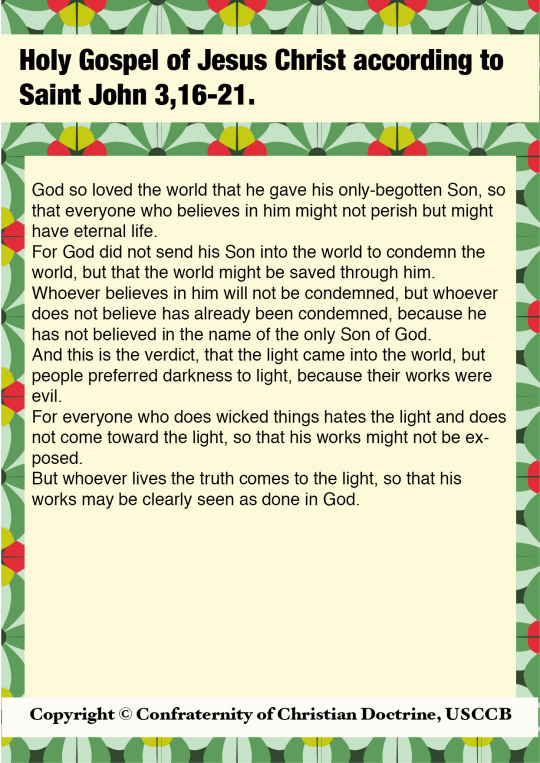

Readings for 19 APRIL
19/4/2023
#Acts of the Apostles 5#Acts of the Apostles#Psalms 34(33)#Psalms#Holy Gospel of Jesus Christ according to Saint John 3#Holy Gospel of Jesus Christ according to Saint John#Pope Francis#God#Lord#Jesus#Holy Spirit#love#hope#heaven#life#peace
8 notes
·
View notes
Text

Paul's Farewell to the Ephesians
Take heed (pay attention, beware) to yourselves and to all the flock among which the Holy Spirit has set you overseers, to shepherd the church of God which He purchased through His own blood.
— Acts 20:28 | Literal Emphasis Translation (LET)
The Literal Emphasis Bible is in the public domain.
Cross References: Jeremiah 3:15; Matthew 16:18; Luke 12:32; John 21:15-16; Acts 20:29; Romans 16:16
#watch#heed#shepherds#flock#Holy Spirit#overseers#church of God#purchased#blood#Acts of the Apostles#Acts 20:28#New Testament#LET#Literal Emphasis Translation#Holy Bible
6 notes
·
View notes
Text
Check out the "May 18" session in Hallow: https://hallow.com/prayers/1008833
#action#acts of the apostles#obediência#holy spirit#positive#gratefulheart#gratitude#faithoverfear#faithblogger
2 notes
·
View notes
Text
Okay, now I'm kind of annoyed, so just going to say this out loud?
It's incredibly important that Mary Magdalene is the Apostle to the Apostles; that God's first public witness to His Resurrection is a woman. But this commissioning of Mary Magdalene to give the news to the Apostles is not clearly analogous to Christ's commissioning of the Twelve Apostles?
In Matthew 10, Jesus gives the Twelve authority; they are not only to preach, but to perform exorcisms, bring healing, raise the dead, and cleanse people. In John 20, the same chapter that Jesus tells Mary to preach the Resurrection, Jesus breathes on the Twelve and tells them they have the authority to forgive or retain sins; Mary does not get this in her own encounter with Jesus. One can argue that Thomas is not present for this, but in Acts 2 Peter and the other Eleven (now including Thomas) receive the Holy Spirit and publicly preach and perform a miracle.
The fact that Jesus commissioned only men to have this special kind of authority isn't necessarily an argument against the ordination of women; but neither is Mary Magdalene's commission to preach the Resurrection an indisputably strong argument for it? Especially given how it seems to be the go-to argument, that it seems to be deployed against the idea that Jesus only called men to priestly ministry, I'd expect something stronger?
And, frankly, I think the Magdalene mission is better suited to the argument that the prophetic voices of women and the laity need to be better included in the governing of the Church than it is an argument that women should be ordained in the Church; that perhaps the inclusion of non-ordained members in higher positions in the hierarchy (as Pope Francis is trying to do) would be a good development for the Church.
#Christianity#Catholicism#ordination#Mary Magdalene#Twelve Apostles#bishop#Gospel of Matthew#Gospel of John#Acts of the Apostles
21 notes
·
View notes
Text
2024 APRIL 04 Easter Thursday
"Repent, therefore, and be converted, that your sins may be wiped away. And that the Lord may grant you times of refreshment."
~ Acts 3:18-19b
#Easter#Easter Thursday#bible#verse#scripture#first reading#Acts of the Apostles#repent and be converted#sins wiped away#times of refreshment#God#Lord#Jesus#Jesus Christ#Christ
2 notes
·
View notes
